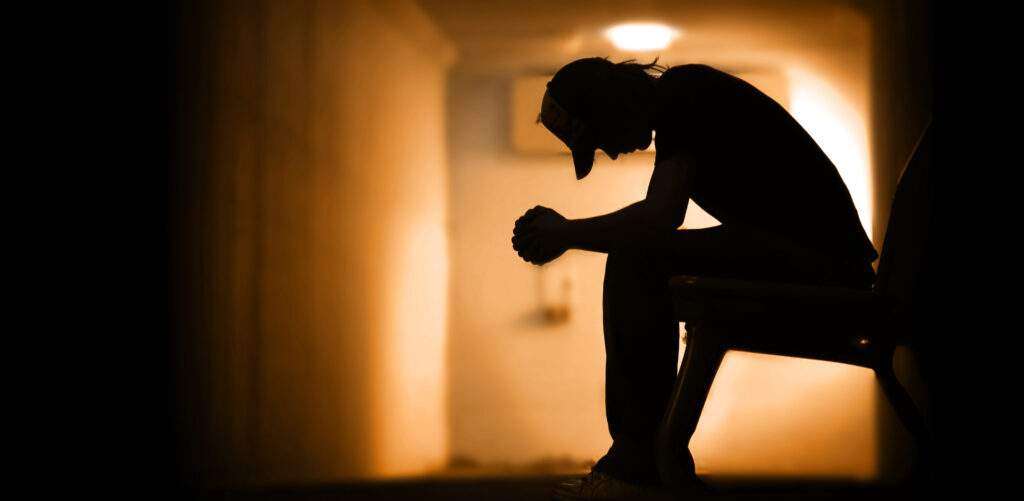Depression is a difficult condition to treat, which in today’s world doesn’t read as something rare. Some people have frequent problems that cause disorders, or even just experience similar symptoms. The manifestation of it can affect the course of life and affairs while worsening emotional well-being and health.
But some therapies are most effective in treating it. These include working with a psychologist and cognitive behavioral therapy. The Heliotherapy Institute has found that red light treatment can also greatly affect depression, which we will also talk about today.
Let’s learn more about the manifestations of the disorder, how to treat it, and other useful things to improve your well-being.
Meaning of depression
Major depressive disorder (MDD) is an emotional condition characterized by episodes of a bad mood, fatigue, loss of pleasure, interest, and enjoyment of activities. People with this diagnosis may also feel irritable, have difficulty concentrating, and even experience thoughts of self-importance or hopelessness.
You May Read: Top Five CBD Gummies For Depression 2023 | Expert’s Choice
This can often manifest itself due to external influences, such as problems in the family, difficulties at work, and deteriorating health. There is also information that one in three Americans has a mental disorder, which is quite high.
In today’s society, the symptoms of depression have greatly increased. Information about treatments for the disorder has become even more important to the public than before. Depression takes many forms, depending on the number of symptoms a person experiences.
Symptoms of depression
As we have said, the list of symptoms that signal the presence of depression has grown longer, but there are a few basic characteristics that manifest most often:
- Emotional
Emotional symptoms appear quite often in the form of low mood, decreased activity, absent interest in life, sleep problems, mental agitation or lethargy, chronic fatigue, and bad thoughts about death. There may also be suicide attempts, lowered self-esteem, difficulty making decisions, and a decline in concentration on anything.
- Physiological
Symptoms of depression in physiological terms can be expressed as various dysfunctions (cognitive and psychomotor), accelerated fatigue process, decreased libido, insomnia, body and muscle pain, constipation, and appetite impairment.
- Behavioral
In terms of behavior, depression is recognized through anxiety, nervousness, aggression, anger, rapid mood swings, bouts of sadness and tears, estrangement from others (an attempt to always be alone with oneself), an attraction to alcohol and drugs, and passivity.
- Mental
The brain can also be affected by illness in the form of difficulty making appropriate choices or decisions, indecision, low self-esteem, slowed thinking, pessimism, and dispersion.
The presence of several characteristics of the manifestation of such symptoms can identify the presence of depression. However, you shouldn’t diagnose yourself if you aren’t sure about it, because it could just be fatigue or burnout. To clearly define your problem, we recommend visiting a psychologist.
Top 3 therapies for treating depression
There are various methods of dealing with depression and its symptoms. However, if you want to work through the problem in a way that suits you or in a complex way, pay attention to the following types of therapy.
Work with a psychologist
A psychologist is always the best idea when you have psychological problems or even feel bad emotionally. In addition to treatment, a specialist can help determine the origin of the onset of depression and work through this so that your condition doesn’t worsen again when you encounter such situations.
Let’s say someone is addicted to gambling! They also can develop depression due to their other life problems. Gambling can be the outcome of their frustration. In such conditions, they might need to take gambling addiction help from psychologists to reduce the addiction and the negative effects like depression.
Also, working with a psychologist isn’t only talking, it is also working on yourself, and performing any tasks that can improve your well-being on your own.
Cognitive behavioral therapy
Cognitive behavioral therapy (CBT) combines two proven ways to combat depression, cognitive and behavioral treatment. It is an effective cure for the mental disorder, which makes it a good resource to use when dealing with negative emotions and a source of symptoms.
In CBT, you can efficiently eliminate unproductive behavior and misguided thought patterns and replace them with better versions. Usually, this will involve at-home assignments. For instance, it might include specifying a list of personal improvement strategies, such as:
- Daily journaling;
- Meditation;
- Exercising;
- Eating healthy;
- Sleeping well;
- Identifying your core beliefs.
Red light therapy
It may surprise you, but red light therapy can improve depression. This is because the glow has antidepressant properties that can improve your well-being from just a few treatments. How is the cure going? You just lie down in the cab (go into a room with red light or other, depending on the type of equipment) and for a few minutes (this may take approximately 15–30 minutes per session), you just receive the red beams.
Light therapy is also starting to work faster than most other forms of treatment for mental health problems. With the constant use of the technique, there is a high probability of overcoming the unpleasant symptoms of depression and improving well-being.
Tips for improving mental well-being
To make it easier for you to deal with this condition, we have also prepared additional tips that can improve your well-being and get your life back on a positive track. Here’s what you should consider:
- Combine all types of therapy for depression. This will help you work through the problems from different angles, speeding up the recovery process;
- Meet with a psychologist. Even if you don’t use the coping method with a psychologist, it’s important to see one to monitor your condition and analyze if your treatment results are available;
- Communicate with your family. This is the best support in depression therapy because loved ones will always be able to support and help, no matter how bad you feel;
- Attend training and meetings. Finding people who have the same goal as you will be able to give you the motivation to move on and go all the way until you reach full recovery;
- Get on with your life. Remember what brought you joy before and start doing it again, thereby bringing back warm memories and positive emotions.
How long does therapy take for treating depression?
It is important to understand that it is a long process, even if you don’t have deep depression. Since we are all dissimilar and can experience the same symptoms differently, there is no one-size-fits-all treatment and its timing. Some researchers say it takes at least 15 sessions with a psychologist for the problem to go away by half. That said, it’s important to work through it on your own by following the recommendations of a specialist. Also, the duration of the cure may depend on the following factors:
- The complexity of the symptoms;
- The duration of the presence of depression;
- Personal predisposition to treatment;
- The degree of return to treatment;
- Level of motivation.
Summary
Depression in today’s reality is quite a common problem. It often manifests as impaired concentration, increased fatigue, decreased libido, loss of interest or pleasure in activities that used to bring joy, and disturbed sleep. Treatment can be a very effective way to treat mental disorders.
These three ways of treating depression are the most effective of all. Attending sessions with a psychologist, cognitive behavioral therapy, and the use of red light capable of treating the mental disorder is convenient and simple. It is safe to say that using all of these methods can help you get your well-being back. Don’t forget to monitor your condition and see a psychologist, who will also observe the manifestations of depression.



